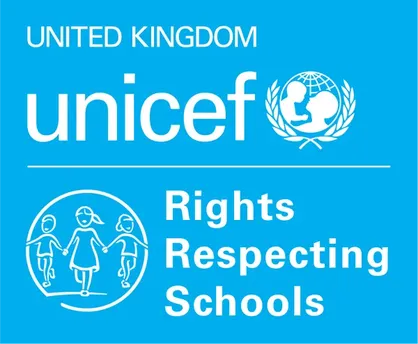Become a Rights Respecting School
RRSA improves the lives of young people by taking a whole-school approach to putting children’s rights at the heart of school policy and practice.
Embedding children’s rights in secondary education can have a positive impact on engagement, relationships, wellbeing, and attendance.
Introducing the language of child rights in a secondary setting can seem daunting but with our support, you will soon see how rights can bring a coherence and consistency to school life – everything from safeguarding to equity and inclusion; from student leadership to personal development. There is no aspect of school life that is not enhanced by viewing it through a rights lens. Conflict resolution and restorative practice is elevated to a new level when the conversation is framed around respect for rights.
Using the UN Convention on the Rights of the Child as our guide we work with secondary schools to embed an effective and comprehensive framework that enhances a school’s vision, aims and ethos to create a community where everyone is valued and respected.
Impact and evidence
The RRSA programme is underpinned by a robust theory of change and supported by impact evidence. Our last impact reporting cycle demonstrated change for young people and whole schools in the following areas:
- They learn about rights
- They can exercise their rights
- A culture of respect across the school
- Pupil engagement – a shared sense of community and belonging
- A culture where young people’s voices are heard and valued
- Young people take their right to an education seriously
- Global citizenship – learners believe they can change the world for the better
- They develop self-esteem and value themselves
- A school environment where all feel safe and cared for
- Adults also benefit from a rights respecting culture
“The school has successfully created a vibrant, inclusive culture where pupils succeed. Leaders have high expectations for all pupils. A high value is placed on the ethos and values that pupils learn, for example as a UNICEF Rights Respecting School…Pupils feel valued and listened to. The student leadership team members contribute positively to school decisions and develop valuable leadership skills in this role.” Kingsbury High School, Brent. Ofsted 2024
- Read more about how we create change for children.
Research from the Equality and Human Rights Commission with UK Schools in 2020 found that becoming a Rights Respecting School has a positive impact on pupil’s engagement, behaviour, attainment, engagement, well-being, and attendance rates:
“Our attendance data – we have improved significantly. And whilst in other schools in the region attendance has dropped, ours has continued to rise.” Teacher in Secondary School in Wales.
“My confidence and independence has been widened and it’s really brought me into the person I am.” Pupil in Rights Respecting Secondary School.
How it works
Schools that sign up to membership commit to putting the Convention and the principles of equity, dignity, respect, non-discrimination, and participation at the heart of school policy and practice.
We work with teachers and staff every step of the way on their journey to become Rights Respecting, providing training, resources and guidance.
Schools work through three stages of the award, Bronze, Silver and Gold. Its transformative and rigorous approach means the journey to the highest stage can take up to four years. Find out more about accreditation here.
In some areas, funding is available to cover the membership subscription. Please see notes in the registration form.
- Have a look at Balerno High School’s dedicated page on RRSA.
The image at the top of this page comes from a photography sessions that was led and directed by young people at a Gold Rights Respecting secondary school. The young people wanted to show how they accessed their right to education and enjoyed science lessons. ©UNICEF/Maule-ffinch







